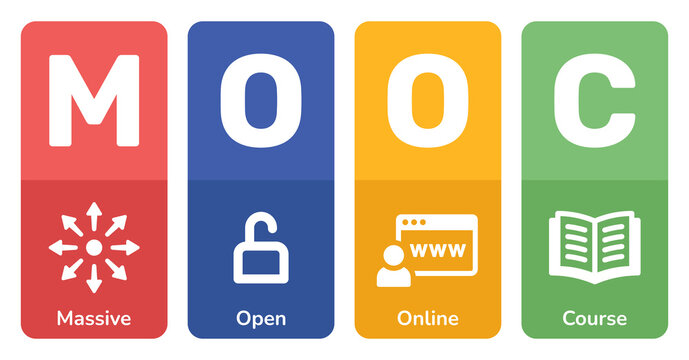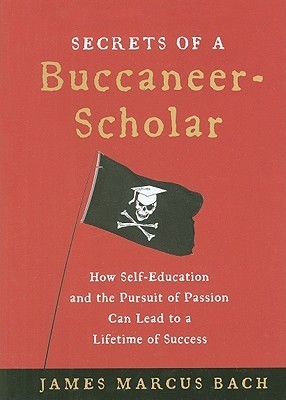Buccaneer Scholar
Discover the Book
Join the Buccaneer Community

About the Book
Why Choose the Buccaneer-Scholar Path?
Freedom of Thought
Break away from the system and the rules. Question assumptions, explore ideas and think critically for yourself.
Practical Knowledge
Emphasis on learning that is relevant in the real world. Apply your knowledge and abilities to problem solve, innovate, and bring results
Self-Mastery
Gain self-assurance, fortitude and intellectual independence. Own your personal and professional development, and do not need others to affirm this.
Community of Thinkers
Join like-minded pirates who cherish knowledge and freedom. Think, work, and expand with fellow seekers of truth.
Principles of the Buccaneer-Scholar
Embrace a mindset that empowers independent learning and meaningful action.
- Challenge authority and conventional wisdom
- Pursue knowledge in a self-directed way
- Construct truth and meaning personally
- Apply learning to tangible success in life and career
Start Your Buccaneer Journey
Take the first steps toward independent learning, self-mastery, and intellectual adventure.
Adopt the Mindset
Be curious, courageous, and a freethinker. Become someone who questions and wants to learn regardless of the ways of doing things.
Engage with Resources
Read the book, read valuable articles and join discussions. Always gather all the tools you can to broaden your understanding and outlook
Apply & Reflect
Apply lessons learnt in real life and professional life. Reflect on your experiences to perfect your strategies and find a distinctive pathway to mastery.
Read Secrets of a Buccaneer-Scholar
Latest News & Updates
What a Tester Does
I was recently asked if I had a motto. I replied “Testers light the way.”
This blog is about learning, but my day job is software testing. I think and learn like a tester.
Recently my colleague, Michelle Smith, gave a nice little example of how testers think. Check it out. See? Testers question things. In so doing we light the way for others. I just blogged about another tester who questioned me and offered a reading list. Fabulous!
Now let me do a little questioning. Consider the photo, below. This is a cup sleeve from Starbucks.
I’m glad that Starbucks wants to “help the planet.” But I worry that someone at Starbucks is not on board with the plan. Do you notice the fine print?
“Intended for single use only.”
WTF?
As a tester, part of my job is to notice inconsistencies. So here are my questions:
- Is this a warning not to use the sleeve more than once? It’s not worded as a warning, but what other reason could there be for it? If it’s a warning, why put it in fine print? You want credit for warning me, but you don’t want me to notice the warning?
- Is this warning motivated by someone who was injured, somehow, when the sleeve snapped? Or is it motivated only by the fear of that potentially happening? Either way, again, why fine print? That’s not going to stand up in court, guys!
- What kind of problem could happen? Is it mechanical failure of the sleeve, or some sort of toxic or biological hazard?
- If the sleeve can fail after one use, can’t it fail on the first use? Shouldn’t there be a blanket warning? “Caution: sleeve may snap at any time.”
- If the sleeve is so weak that more than one use puts the customer at risk of Sudden Coffee Lossage Syndrome, wouldn’t it be prudent to use a stronger glue or something? Maybe fix the problem instead merely hoping to win the lawsuit.
- What does it mean to use the sleeve more than once? Does it mean I can’t have a refill in the same cup? Does it mean I should not transfer the sleeve to another cup?
- What if I nurse one coffee a loooonng time? Is that a sleeve hazard?
- Maybe “single use” means “used for a single purpose”? Could it be that Starbucks is telling us not to use it at a coaster?
If “single use” means use it one time and then throw it away, that saves 60% over throwing away a sleeve made from non-recycled material. But if you use a non-recycled sleeve ten times, the savings is four times greater than using Starbuck’s one shot wonder sleeves.
Starbucks needs a green reality check.
Buccaneer-Scholar Defined
I have resurrected the idea of buccaneering for the modern era. It once referred to men who sailed about the Spanish Main, attacking mainly Spanish ships, and hijacking treasure. The buccaneers were independent-minded people. They were fortune hunters who lived by their wits. Yet they were capable of organizing, too. They established a culture for themselves.
Buccaneering could exist back then because, in the 17th century, there was a power vacuum in the Caribbean. Today there is also a sort of vacuum. But it’s an idea vacuum, not one of physical force. Major corporations no longer control the expression of ideas. Anyone with ideas may prosper. The Internet has made this so. And since no corporation or business will offer much job security, anymore, it’s becoming increasingly attractive for eager minds to live and learn independently.
I thrive in a rough habitat. I am self-employed and self-educated. I have been a consulting software tester for many years, and that’s fine. But now I’d like to expand my horizons and start talking about thinking, learning, and explore the true nature of education in the modern world.
A buccaneer-scholar is anyone whose love of learning is not muzzled, yoked or shackled by any institution or authority; whose mind is driven to wander and find its own voice and place in the world.
This way of being has sometimes been called autodidact, individualist, anarchist, non-conformist, contrarian, bohemian, skeptic, hacker, hippie, slacker, seeker, philosoph, or free thinker. None of those terms quite fit for me.
In this blog I will be exploring and exemplifying what it means to be an intellectual buccaneer. I hope to meet other buccaneers along the way.
Welcome aboard.
How to Build Knowledge Without a Conventional Education
In today’s dynamic world, the construction of knowledge is no longer a novelty that is restricted to the confines of the traditional school or university. Traditional models of education are now being replaced with thinkers, doers, and doers who learn, and experience-based opportunities that transform anybody into an intellectual learner without the traditional limitations. How to grow and build expertise outside the traditional classroom.
Embrace Self-Directed and Life-Long Learning
Self-directed learning is key to becoming an independent learner. This technique is about defining personal learning objectives, choosing the resources and being driven by curiosity and intrinsic motivation. Once you know what interests you – in science, art, business, technology, etc. – start finding books, articles, podcasts, online lectures, tutorials and other ways to pursue your passion profusely. This kind of knowledge building builds independence, discipline and critical thinking – all of which are important in any career or activity.
Explore Alternative and Flexible Learning Platforms

From a how-to video to a college course, online learning has become a global leveling mechanism that provides instant access to all things from anywhere with an internet connection. Massive Open Online Courses (MOOCs), virtual classrooms, skill-sharing apps, and interactive forums make learning flexible and fit around any schedule. Many platforms provide the opportunity to study at your own pace, re-visit complex material and explore different fields for little or no expense. Microschools, pods and self-directed centers are community-led models that provide collaborative spaces to work on subjects with others, with both structure and flexibility.
Make Learning Active: Projects, Practice, and Application
Knowledge is internalized only when it is put into practice. Work on project-based learning: make experiments on your own, create a blog, develop an app, or volunteer for organizations, or work on open-source projects. Real life experiences support learning, lead to further questioning and present skills to future employers and/or collaborators. Videos, written instruction manuals and peer groups likewise help to increase understanding because in teaching you also learn and it is only through explanation that one learns what is clear.
Find Mentors, Communities, and Real-World Feedback

Mentoring and peer learning are still powerful tools beyond the four walls of education. Find experienced mentors – Look for mentors in the community (online forums, professional networks, local meetups) who will be able to critique your progress and give you actionable feedback. Online discussion groups, public forums, and collaborative projects offer feedback, accountability and motivation. Communities put you into contact with different viewpoints, question your presuppositions, and advance your development faster.
Build Holistic Skills
Modern knowledge building is also about building soft skills like communication, collaboration, adaptability and emotional intelligence. Hold conversations, participate in group activities, and creative activities to practice these important skills. A comprehensive approach not only emphasizes academic knowledge but also the development of resilience, critical thinking skills, problem-solving abilities, and ethical decision-making – all essential qualities for long-term success.
Ultimately, self-education without a traditional education means being a curious, resourceful, and experimental learner. “With today’s technology, the availability of varied communities and real-world opportunities, anyone can become an expert in the field of their choice.” The road can be unlike, but it is full of independence, discovery and life-long learning.
How to Talk to Your 43 year-old Son When He’s Only 13
When my dog was killed I saw the school bus coming back up the long dirt road. I saw it coming as I stood over the broken body of my sheltie Astra, who had been running around alive just five minutes earlier. I guess the bus driver never knew he killed her, because he waved at me. And too late I thought to seize a rock and smash his goddamned windshield. Oh the fury I felt in that five seconds. Maybe broken glass in the driver’s face would help him understand what he had done to me. I looked but there were only bits of gravel on the ground, and a moment later the bus was bouncing away and gone. I couldn’t even bring to mind a fitting swear word to shriek after it (all that practice I had at summer camp for nothing.) I seethed and vibrated for a moment, then my stomach dropped away. I couldn’t look at Astra. I walked to the house and went to bed. I later learned that my step-father, Jon Fineman, buried her in the forest.
Astra was the family dog, but I always felt she loved me best. Everyone knew she belonged to me.
I had never experienced grief before. It was a completely new sensation, like getting drunk would be, a few years later, or making love, a few years after that. But unlike those things it went on and on. I suppose I could compare it with a very high fever that puts you into delirium, but at that time I hadn’t ever been sick like that. So, it was really new for me.
My body and mind were shutting down, as if a bank of fuses had all gone out at once. I went to bed and everyone knew to stay away. Except Jon.
He came in, sat down, and said some things. I don’t recall exactly what he said. I could tell he was trying to comfort me. It wasn’t working. I didn’t want to hear from him, or anyone. I wanted everyone gone. I wanted time to turn back or the world to explode. Neither was going to happen so leave me alone Jon. Leave. Go. Go. Get out of here.
He did go after a little while.
What he said meant nothing to me, and I was embarrassed for him. What could words do for me? Words are nothing. What the hell was he trying to do?
Well, thirty years later…
I’m thinking about Astra, for some reason. Can’t remember what brought her to mind, but she drifts in now and again. Good old dog.
I remember the day she died. I had been playing with her after school: chase, fetch, and all that. We were running near the long dirt road that crossed by the front of our rural Vermont homestead. Then I got tired and went indoors. I should have taken Astra inside, too. It was my responsibility. When you play with Astra outside you don’t leave her. Because she chased cars. She especially loved to chase the high school bus that would be bringing my sister home any moment. I didn’t bring the dog in. I was careless. Then the bus came, she charged into it, and went under the wheels.
The family knew I left her out. Jon knew, and he was big on the philosophy of consequences. But when he came to speak to me later that night– when I ignored him and despised him– he said nothing of that. He chose not to add his voice to the chorus in my mind screaming at me, that I had killed our happy dog. Then this man, Jon Fineman, who loved Astra too, told me how he also had a dog once that died. He offered his friendship, and he forgave me.
So, What?
When you speak to your child, and you feel that he is not listening, maybe he isn’t. When you speak to him and you suspect he’s silently ridiculing you, maybe he is. When the gift of your advice or sympathy fails in every way to touch him, and you believe yourself a failure, maybe you are. For now.
Bide your time.
Just imagine the man he will be, someday. His now subtle and caring mind clambering back through his life, looking for support in the events that shaped him– just imagine how he’ll come upon your words. The gift you tried to give. Faded on the outside, yet vital still inside, it will open like a blossom. Even thirty years later.
Thanks, Jon.
When you speak to your children today, you are also speaking to every day of their future selves. Parenting is outside of time. Take care and take heart in that.
Competitive Swashbooking
Swashbooking is a process of quickly skimming books, looking for anything important. My brother and I invented it as a way to supercharge our learning.
In our first experiments, we set a recurring alarm at six minutes, and switched to a new book every time the chime sounded. At the end of one hour, we each gave book reports. Since we read the same books, we were able to compare what each of us had absorbed. We discovered that for most books– even really thick ones– we were able to discover powerful ideas in only six minutes.
Then we hit upon a new idea: Let’s take a stack of books (115 that we had never read) and set a timer for eight hours. During that time (stopping the clock for meals and a few breaks) we would read for the purpose of preparing an oration that would refer to as many of the books as possible.
By the time it was over, Jon had covered 47 books and I covered 46.
Richard Bach: Lesson About Risk
My father crashed his airplane, yesterday. He’s alive, but seriously injured.
He hit a power line while landing at a small grass field on San Juan Island. We don’t yet know much about the conditions surrounding the accident. It may be a simple matter of pilot error, on par with backing your car into a fire hydrant while trying to park (I’ve done that– twice), or there may have been a sudden downdraft or mechanical failure that contributed to the situation. We don’t yet know.
[New Information: We were wondering how he hit the power lines when he had been told about them. It turns out that there are two sets of transmission lines at that location. He cleared the phone lines and hit the power lines. I bet he saw the phone lines and assumed those were the ones he’d been warned about. Meanwhile he was landing to the South because there was a South wind, and he would have tried to cut it close because the field slopes downward and is not very long.]
But it makes me reflect on what he has often told me about risk-taking. He enjoys taking risks, he often says, but his risks are controlled and calculated. His risk-taking is characterized by plans and backup plans. He is a safety-obsessed pilot.
Part of what he loves about flying is the harsh honesty of it. Aviation is perfectly lawful and just. A pilot who lives well by the laws of flying lives long and happy. A pilot who violates them will not remain a pilot for long. Still, a pilot cannot control every detail, so good pilots fly with humility.
That attitude about flying also permeates his life, and its one of the many gifts I have of him, and my brothers and sisters, also: We are not victims of fate, we are the authors of our lives. Yes, life will be turbulent, at times. We will have our inflight emergencies. But we prepare for them, and we take action to turn bad feelings and bad situations into something positive.
Turn everything positive. Learn from everything that happens. In this way, we are always pilots-in-command, no matter what happens.








